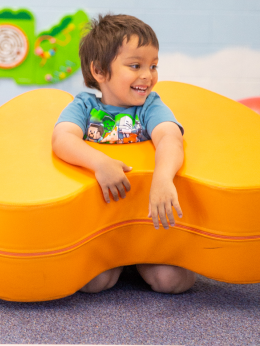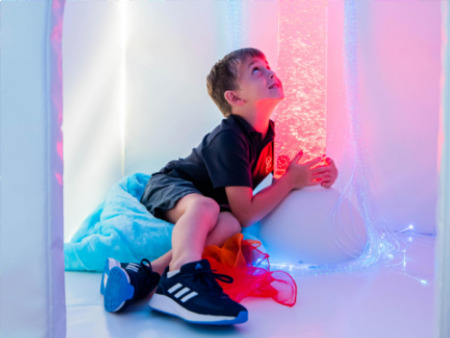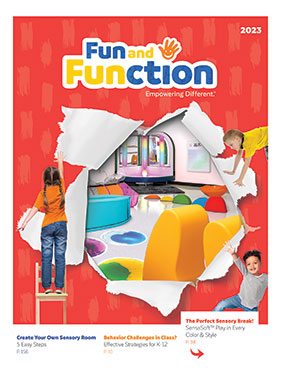Not everyone is born with innate ability to socialize appropriately. Social norms are learned from our family and environment but our ability to integrate them is innate. Most of us eventually catch on, but if you struggle with a sensory processing disorder or neurological challenge such as Autism, you're ability to perceive facial gestures, pick up on social norms and the ability to regulate your emotions may be very challenging.
Here are three suggestions for activities that may help improve social skills:
Greetings
It seems simple enough. "Just say, ‘hello." But not everyone can. It may be that the person is distracted, lacks attention or is just not able to communicate or to say, "hi," but it can be offensive and in many cases can be learned. Let your child practice with a pet or pretend doll/friend, stuffed animal or toy that has a face. Have a starring contest. They can also practice looking in the mirror at themselves making eye contact and saying, "hi!" When they get good at it, have them add in a person's name, like, "Hi, Jason." Next time the doorbell rings, take your child with you to answer the door. Let them open the door and say, "hello." Try to prepare your child before going to the door, visiting a friend or to public places like church or school and have them practice.Table Manners
How we sit and eat at a table can impact our social life. Start with teaching your child how to set a table. This will impress upon them the importance of mealtime. Let them partake in preparing food that is appropriate for their age. Provide a good seating option so they can sit comfortably at the table. Provide a weighted lap pad if needed for better sensory input. A timer can be used as well so that they learn to sit for a designated amount of time. Remind them that eating slowly (not shoveling food), asking to have things passed (not reaching) and sitting properly take practice. And electronics at mealtime are not appropriate.Body Control
Hand flapping, nail biting, chewing and rocking all act as sensory filters. However, they are not always socially appropriate and as your children get older it becomes more challenging to "fit in" with these behaviors. Providing some alternative tools that encourage sensory processing can enable an individual to get the input they crave in a socially appropriate way. For hand flapping, make sure you have a fidget tool nearby. And maybe try some drumming or a rhythmic instrument to play on a regular basis. Nail biting? Keep a chewy close at hand. Got a "rocker"? Keep a rocking board, jumping board or swing available to use at internals. Movement is the best filter of all. Find a sport (it can be individualized) or activity that your child can do several times a week if not daily to help them filter out extraneous movement and stress.Do you have any strategies for teaching healthy social skills? We love to hear your thoughts! Share your ideas with us in the comments, at social@funandfunction.com, or on our social media pages!




















Comments